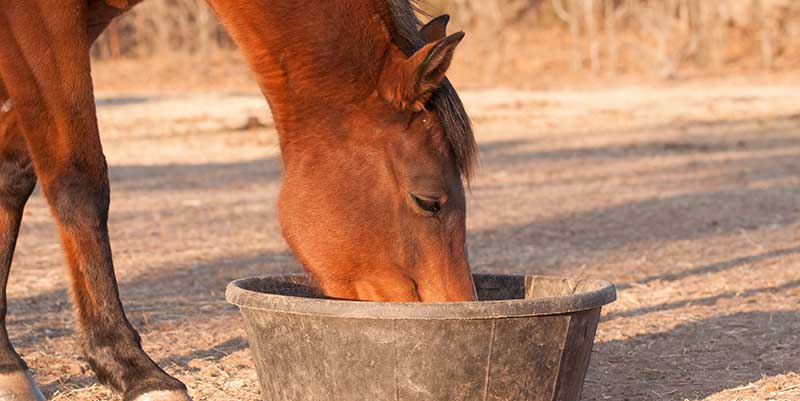Ensuring your horse receives the proper nutrition is crucial for its overall health and performance. Whether you’re aiming for peak athletic performance or simply keeping your horse healthy and happy, understanding their nutritional needs is fundamental. In this article, we’ll explore top horse nutrition tips that can help you achieve optimal health and performance for your equine friend.
The Importance of Nutrition for Horses
Nutrition plays a vital role in every aspect of your horse’s life. It affects their growth, energy levels, and even mood! By providing balanced nutrition, you set the stage for a happier, healthier horse.

Understanding Equine Digestive Systems
Horses have unique digestive systems that require specific types of food. Unlike humans, horses are designed to graze for long periods. Their digestive systems work best when they have constant access to forage.
The Role of Nutrition in Performance
Proper nutrition is essential for performance. It fuels your horse’s workouts, helps with recovery, and supports overall well-being. Think of it as giving your horse the right fuel to run a race or perform its best in competitions.
Essential Nutrients for Horses
To achieve optimal health, your horse needs a well-rounded diet that includes various nutrients. Let’s break down the essential nutrients your horse requires.
1. Carbohydrates
Carbohydrates are a primary energy source for horses. They help sustain endurance and power during performance.
Sources of Quality Carbohydrates
Good sources include hay, oats, and beet pulp. Ensure your horse’s diet consists of easily digestible carbohydrates for maximum energy.
2. Proteins
Proteins are crucial for muscle development and repair, especially for active horses.
Identifying High-Quality Protein Sources
Look for alfalfa, soybean meal, and commercial feeds that contain adequate protein levels. Quality protein supports muscle maintenance and growth.
3. Fats and Oils
Fats provide concentrated energy and can be beneficial for horses needing extra calories without bulk.
Benefits of Healthy Fats
Adding vegetable oils or stabilized rice bran to your horse’s diet can help improve coat condition and provide additional energy.
4. Vitamins and Minerals
Vitamins and minerals are essential for various body functions, including bone health and immune support.
The Importance of Balanced Vitamins
Ensure your horse receives a balanced mix of vitamins A, D, E, and essential minerals like calcium and phosphorus. Supplements can be helpful, but always consult with a vet before adding them.
Feeding Practices for Optimal Nutrition
Besides knowing what to feed your horse, how you feed matters too! Here are some practices to adopt for optimal nutrition.
1. Create a Consistent Feeding Schedule
Horses thrive on routine. Establishing a consistent feeding schedule helps regulate their digestive systems and promotes overall health.
2. Monitor Body Condition and Weight
Keep an eye on your horse’s body condition and weight. Regularly assess if your horse is too thin, too heavy, or just right, and adjust their diet accordingly.
3. Provide Clean, Fresh Water
Water is essential! Horses need constant access to clean water. Dehydration can lead to severe health issues, so make sure your horse stays hydrated, especially after workouts.
4. Avoid Overfeeding and Underfeeding
Finding the right balance is key. Overfeeding can lead to obesity, while underfeeding can cause malnutrition. Know your horse’s specific needs and adjust their portions based on activity levels.
Special Considerations for Performance Horses
If you’re training or competing with your horse, special nutrition considerations are necessary to enhance performance.
1. Pre-Performance Feeding Tips
Feed your horse a high-energy meal about 2-3 hours before performance. This meal should include easily digestible carbohydrates and moderate protein to boost energy without causing digestive upset.
2. Post-Performance Recovery Nutrition
After a performance, focus on recovery. Providing electrolytes and protein helps restore energy levels and repair muscles.
Common Nutritional Mistakes to Avoid
It’s easy to make mistakes when it comes to horse nutrition. Here are some common pitfalls to steer clear of.
1. Relying Solely on Grain
While grains can be beneficial, relying solely on them can lead to imbalances in your horse’s diet. Ensure you include forage as a significant part of their nutrition.
2. Neglecting Forage Quality
Always prioritize high-quality forage. Poor-quality hay can lack essential nutrients and fiber, impacting your horse’s digestive health.
Conclusion
Understanding the nutritional needs of your horse is essential for maintaining their health and enhancing performance. By providing a balanced diet and following the feeding practices outlined above, you’ll set your horse up for success. Remember, when in doubt, consult with a veterinarian or equine nutritionist for personalized advice!
FAQs
1. How much should I feed my horse?
The amount varies based on age, weight, and activity level. A good rule of thumb is to feed 1.5% to 2.5% of their body weight in forage daily.
2. Can I feed my horse too many treats?
Yes, treats should be given in moderation to prevent obesity and digestive issues. Aim for 10% or less of their daily caloric intake from treats.
3. What are the signs of nutritional deficiencies?
Signs can include poor coat condition, lethargy, weight loss, and unusual behavior. Consult your vet if you notice any of these symptoms.
4. Should I supplement my horse’s diet?
Supplements can be beneficial but should complement a balanced diet. Always consult with a vet before introducing new supplements.
5. How does a horse’s age affect its nutritional needs?
Younger horses may need more protein and energy for growth, while older horses may require softer feeds and joint support.
6. What’s the best way to introduce new feed?
Introduce new feed gradually over 7-10 days to avoid digestive upset. Start by mixing a small amount with their regular feed and gradually increase it.
7. How often should I consult with a veterinarian about my horse’s diet?
Regular check-ups, at least once a year, are advisable, but consult your vet anytime you notice changes in your horse’s health or behavior.

